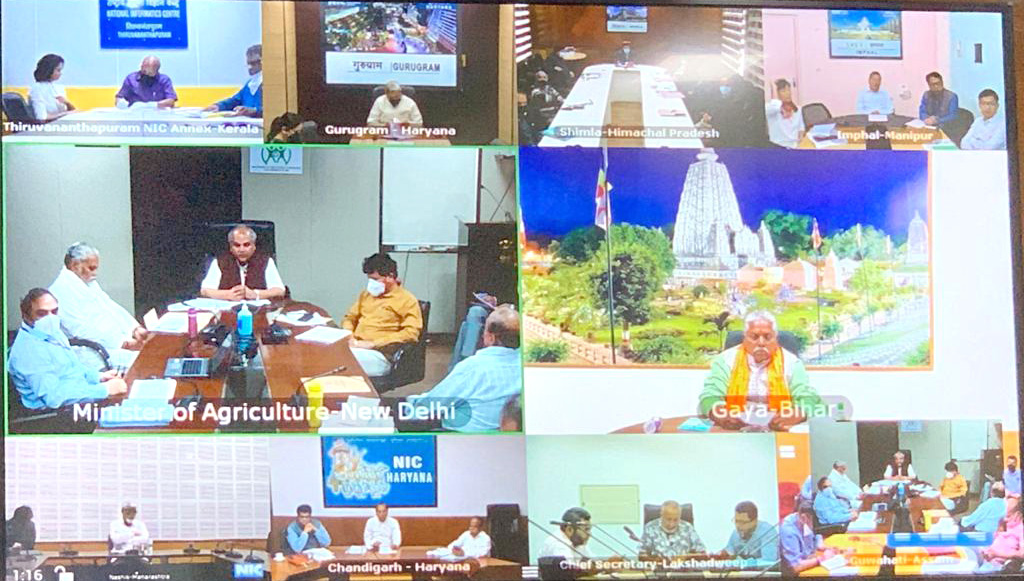The Union Minister of Agriculture and Farmers Welfare, Narendra Singh Tomar held a meeting with the States through Video Conferencing to discuss issues related to harvesting, procurement, availability of inputs, credit, insurance and inter-state movement of agriculture produce.
While some of these were solved at once and instructions were passed on to the states, other issues which required deliberations were noted and states were assured that it would be looked into and necessary instructions would follow in due course.
The MoS Parshottam Rupala and Kailash Choudhary, Secretary (AC&FW), Sanjay Agarwal, Special Secretaries, Additional Secretary (Agriculture) and senior officers of the Ministry participated in the interaction held through VC.
Agriculture Ministers of the States, APCs, Secretaries and other senior officers of the States participated in the video conferencing. The State Agriculture Ministers appreciated the efforts of the Centre, govt sources claimed.
Tomar informed that the Kharif National Conference will be held today April 16, 2020) through Video Conferencing to firm up the field preparations for ensuing Kharif season and urged the states to make advance preparations for all the logistics and be prepared for the conference.
He talked about the usefulness of Aarogya App and urged the states to popularize its use among the farmers and other citizens. Minister appreciated the efforts of States for their proactive role in undertaking agriculture activities even during the challenging time in wake of the COVID-19 pandemic.
The states were again informed about the various exemptions such as free farming operations by farmers and farm workers in the field; ‘Mandis’ operated by the Agriculture Produce Market Committee or as notified by the State Government; Shops for Seeds, Fertilisers and Pesticides; Manufacturing and packaging units of Seeds, Fertilisers and Pesticides; Custom Hiring Centres (CHC) related to farm machinery, etc.
It was also decided to issue authorization letters to companies/organizations having nation-wide supply chains of essential goods, allowing them to issue regional passes for easy movement of critical staff and workers in order to maintain their national supply chain.





